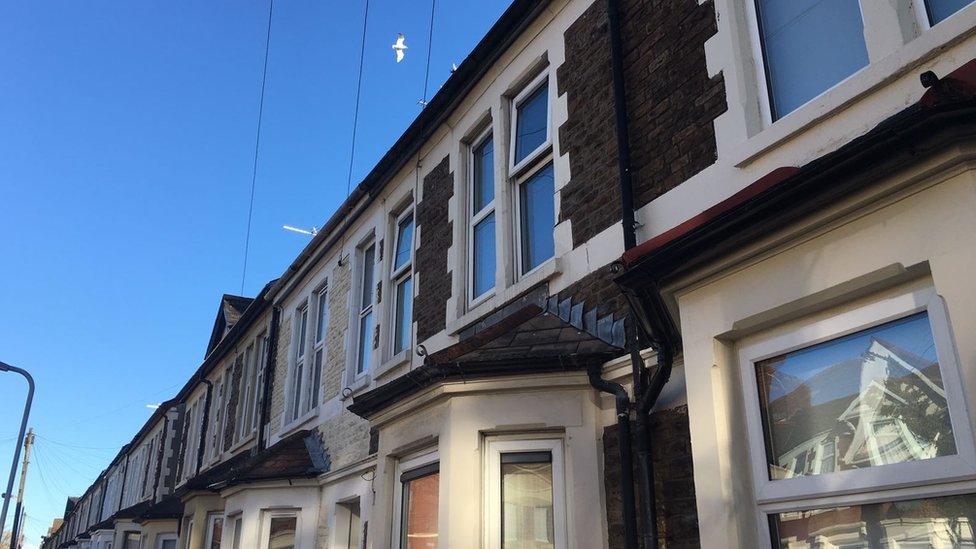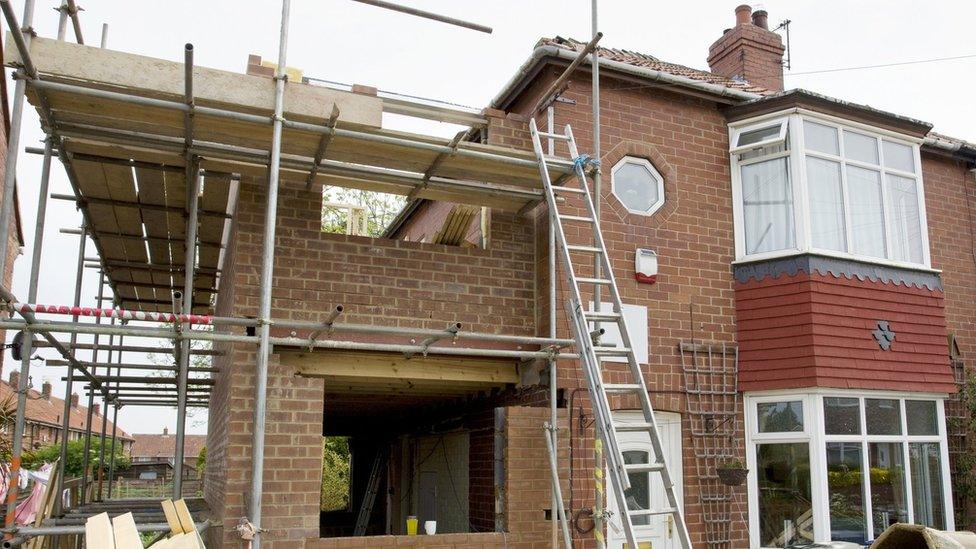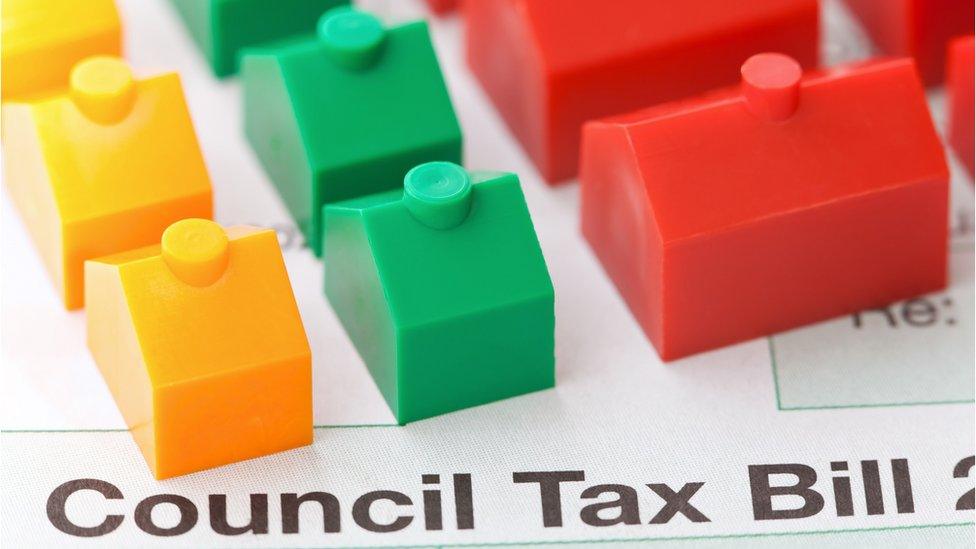Wales council tax: Don't rush into changes, warn council leaders
- Published

How much council tax you pay is determined by the band your house is in
Wales should not "rush into" changing people's council tax bands when their finances are stretched and the economy unstable, council leaders have warned.
A July consultation included plans for reforms in 2025, after the first council tax revaluation in 20 years.
Vale of Glamorgan leader Lis Burnett said putting some households in higher bands "could be the final straw".
Ministers said "any changes will be carefully thought through" and take account of financial pressures.
Ms Burnett agreed with the Welsh government's aim of making the tax fairer but expressed concerns about the timing.
At the last revaluation a third of households, external saw their bills rise, although the Welsh government says the process does not necessarily mean tax bills will go up.
The move is part of the Welsh Labour government's deal with Plaid Cymru, which was signed a year ago.
More bands could also be added at the top and bottom of the range, and a system of rolling revaluations could be implemented every five years.
Critics say council tax is out of date because it is based on old property values, and does not fairly tax people on lower incomes.
Labour Vale of Glamorgan leader Ms Burnett was asked at a Senedd committee on Thursday whether now is the right time to make changes to the system.
"I think that is a matter of huge concern, in terms of when it's done and how it's communicated," she told the Local Government and Housing Committee.
"You can't overstate the pressure that people are under at the moment, but at the same time, there are currently people that are disadvantaged by the system."
There was a need to be "very careful" and "certainly not to rush into" changes "until there's some stability within the economy".
"The thought of this adding one more straw on to people's already heavy load, [it] could be the final straw."
'Timing is important'
Dyfrig Siencyn, Plaid Cymru leader of Gwynedd Council and a former valuation officer, agreed that "timing is important".
"The housing market at the moment is one that is unstable, interest rates have increased, there is pressure on house prices.
"From a practical perspective, I do think we need to reach a point of stability in the market, never mind fiscal [tax] stability, for our people and financial security, so timing is important.
"Perhaps we should wait a while to see the economy in general settling down to something that is more normal."
The consultation document, external stated: "If the Welsh government were to undertake a revaluation exercise, create new bands and choose new tax rates to make the system fairer, this would be an extensive piece of work with the Valuation Office Agency and our local government partners.
"We would need to bring in a body of new legislation and make some changes to administrative arrangements.
"To achieve our aims by the end of the current government term (2021-2026), it is our view that 1 April 2025 would be a suitable date to implement reforms, creating a system based on property values in Wales as at 1 April 2023."
What do ministers say?
A Welsh government spokesperson said: "Reforms will modernise the council tax system, making it fairer and more progressive in its design and delivery.
"The cost-of-living crisis has only added to the importance of this work, and part of what we are considering is how to improve the Council Tax Reduction Scheme, external, which provides support to low-income households.
"Proposals remain at an early stage and we are reviewing responses to our recent consultation.
Any changes will be carefully thought through, taking account of financial pressures households are under. Any specific proposals will be the subject of further consultation."
How does council tax work?
Council tax raises more than £2bn of the £10bn annual cost of Welsh local government, with most funding going to education and social services.
The amount you pay depends on the value of your home, based on a valuation exercise last done in 2003.
Homes are graded into bands from A to I. Band A homes - valued at less than £44,000 - pay the least council tax, and homes in band I - valued at more than £424,000 - pay the most.
There are more homes in band C in Wales (valued from £65,001 - £91,000) than any other band.
The Welsh government says the tax bands no longer represent today's house values.
Currently band I properties pay three and a half times as much as band A, yet homes in the top band can be worth at least nine times as much.
Until the 2023 revaluation is done it will not be known how many would lose or benefit from the changes.
A 2019 paper by the Institute for Fiscal Studies (IFS) estimated that a revaluation based on the current system could see 26% go down a band, and 26% go up, with 49% remaining the same.
- Published12 July 2022

- Published7 December 2021

- Published11 November 2022
